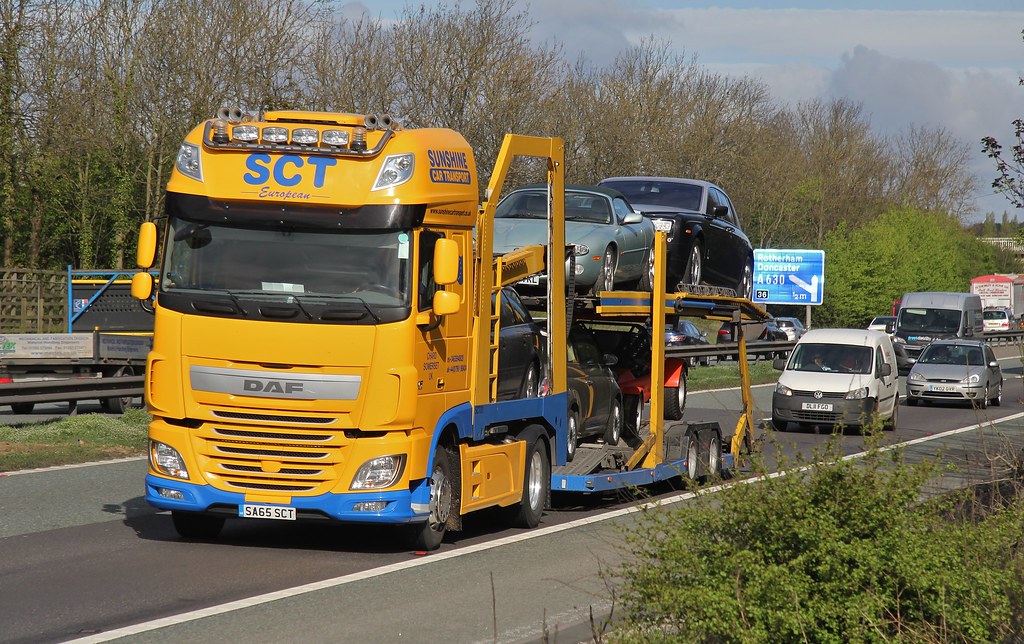Reliable Car Shipping Services Across the USA
Have you ever faced the challenge of moving your car across hundreds of miles? Whether you’re relocating for work, heading out for a long road trip, or needing to transport a classic car, navigating the car shipping process can feel overwhelming. I know the feeling—I went through it myself when I had to ship my vintage Mustang across the country. Fortunately, car shippers after a lot of trial and error, I’ve learned some valuable lessons that can make this process smoother for you. Here’s what you need to know.
Understanding Your Car Shipping Options
When it comes to car shipping, you have two main options: open shipping and enclosed shipping. Both options come with their pros and cons, depending on your vehicle’s value and your budget.
Open Shipping: The Standard Choice Open shipping is the most common and affordable option. Your vehicle will be loaded onto an open trailer alongside other cars, much like the car carriers you’ve seen on the highway. Although it’s exposed to the elements, open shipping is generally safe for most vehicles and is widely used by car owners.
Enclosed Shipping: Extra Protection for Special Vehicles If you’re shipping a luxury or classic car, enclosed shipping offers added protection. Your car will be placed inside a trailer, shielding it from weather and road debris. This option comes at a higher cost but provides peace of mind, especially for high-value vehicles.
Here’s a quick comparison of costs based on vehicle type:
| Vehicle Type | Recommended Shipping Method | Average Cost |
|---|---|---|
| Standard Cars | Open Shipping | $600 – $800 |
| Luxury Cars | Enclosed Shipping | $1,000 – $2,000 |
| Classic Cars | Enclosed Shipping | $1,000 – $2,500 |
If you’re on a budget, open shipping is often the best option. But if you’re transporting something special, the added security of enclosed shipping may be worth the investment.
Why Open Shipping is Safe and Cost-Effective
Many people worry that open shipping isn’t safe enough, but the reality is that it’s a standard practice used by car dealerships and manufacturers every day. Open trailers are built to keep vehicles secure during transport, and professional drivers are trained to handle a variety of situations.
Not only is open shipping safe for most vehicles, but it also saves you money. The lower cost can allow you to spend on other necessities, like a new set of tires or an upgraded GPS system.
Brokers vs. Carriers: Understanding the Difference
The car shipping process often involves two types of businesses: brokers and carriers.
Brokers: Brokers act as middlemen. They don’t transport your car themselves but connect you with a carrier that will. Brokers simplify the process by handling logistics and finding a carrier that meets your needs.
Carriers: Carriers are the companies or individuals who physically transport your vehicle from one place to another. Once you book with a carrier, they are responsible for picking up, transporting, and delivering your car.
Understanding the difference between brokers and carriers is important because it impacts cost and trust. Brokers typically offer a range of prices and options, while carriers set their own rates. By knowing who you’re dealing with, you can avoid unexpected charges and ensure your car is handled by reliable professionals.
Factors That Affect Car Shipping Costs
Several factors can influence the cost of shipping your car:
- Size and Condition of Your Vehicle: Larger vehicles or those in poor condition may require additional fees for transport.
- Seasonal Demand: Shipping rates fluctuate throughout the year. Prices are typically higher in summer, while winter months may offer lower rates.
- Insurance: Ensure that insurance coverage is included in your quote. Accidents or damage during transport are rare, but it’s better to be safe than sorry.
How to Find a Trustworthy Car Shipping Company
Finding a reliable car shipping company is crucial. Here’s what to look for:
- Check Reviews and Ratings: Websites like Trustpilot or the Better Business Bureau are great sources for verified reviews.
- Ensure Insurance Coverage: Confirm that the company provides adequate insurance during transport. You don’t want any surprises if something happens to your car during transit.
- Prioritize Communication: Make sure the company provides regular updates and offers shipment tracking. This helps ease any concerns about your car’s journey.
Final Thoughts
Car shipping doesn’t have to be a stressful experience. By understanding the difference between open and enclosed shipping, brokers and carriers, and by comparing quotes, you can ensure a smooth process. Take the time to research and choose a trustworthy company, and soon your vehicle will be safely delivered to its destination.
